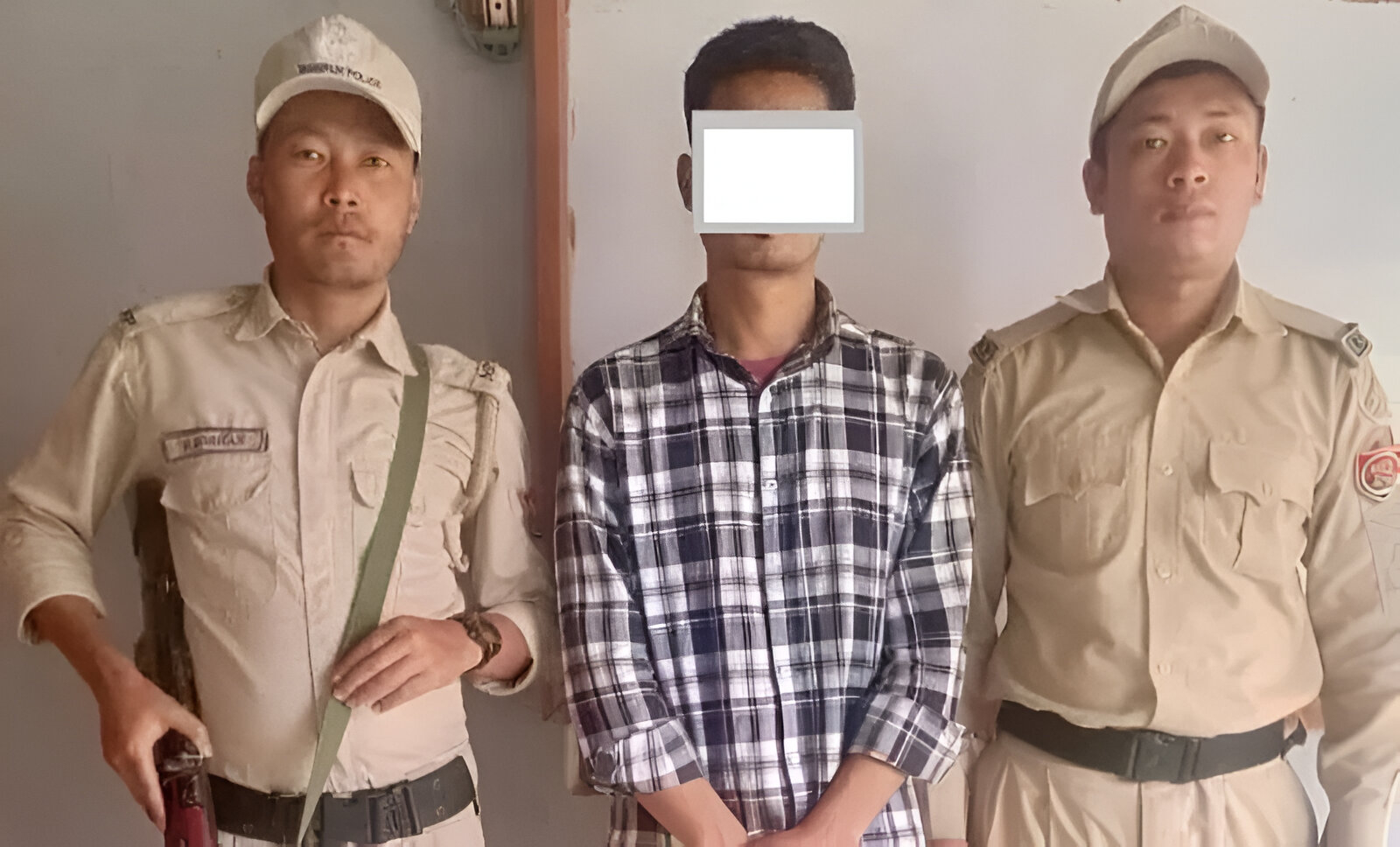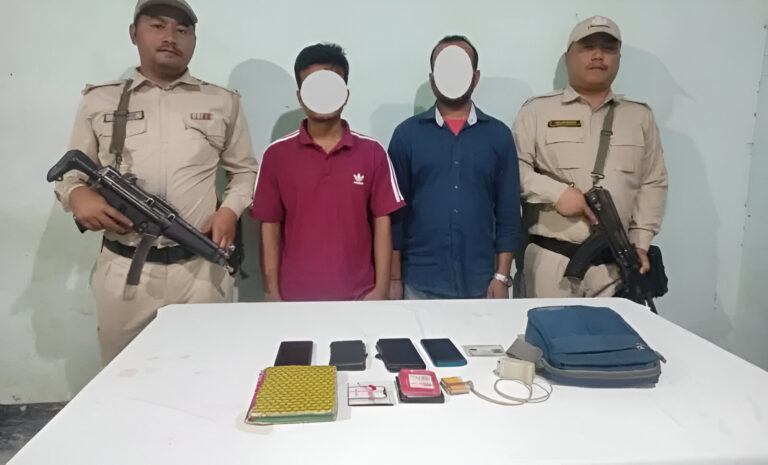Manipur Police Arrest Man for Spreading Communal Fake News
Summary
In a recent development, the Cyber Crime unit of Manipur Police arrested a 25-year-old individual, Seram Suraj Meetei, for allegedly disseminating fake news with communally sensitive content. Meetei, the administrator of a Facebook page, was apprehended in Imphal East district. Authorities recovered a mobile phone and SIM card from his possession, emphasizing that the content shared had the potential to incite communal tensions and disturb public order. The police have issued a stern warning against the creation and circulation of misleading and provocative content, stating that individuals involved in such activities will face serious legal consequences.
The Digital Age Dilemma: Navigating the Spread of Fake News in Manipur
In today’s interconnected world, information spreads at the speed of light. But what happens when that information is false and potentially harmful? Let’s dive into a recent incident in Manipur that sheds light on this pressing issue.
The Incident: A Closer Look
Imagine scrolling through your social media feed and stumbling upon a post that raises your eyebrows. It’s provocative, sensational, and tugs at your emotions. But is it true? On April 2, 2025, the Cyber Crime unit of Manipur Police arrested 25-year-old Seram Suraj Meetei for allegedly spreading such fake news with communally sensitive content.
- Who is Involved? Meetei, the administrator of a Facebook page, was apprehended in Imphal East district. A mobile phone and SIM card were seized during the arrest.
- What’s the Big Deal? The content shared had the potential to incite communal tensions and disturb public order—a serious concern in a diverse society.
The Ripple Effect of Fake News
Ever played the game of “telephone” as a kid? One person whispers a message to another, and by the time it reaches the last person, it’s completely distorted. Fake news operates similarly but with far graver consequences.
- Eroding Trust: When false information circulates, it undermines trust in legitimate news sources and institutions.
- Fueling Division: Fake news can deepen societal divides, pitting communities against each other.
- Inciting Violence: In extreme cases, misinformation can lead to real-world violence and unrest.
Why Do People Spread Fake News?
It’s easy to point fingers, but understanding the “why” is crucial.
- Attention and Influence: Sensational content attracts attention, and some individuals crave the influence that comes with it.
- Financial Gain: More clicks can mean more ad revenue. Controversial content often drives higher engagement.
- Misinformation: Not everyone verifies information before sharing, leading to the unintentional spread of falsehoods.
The Role of Social Media Platforms
Think of social media as a double-edged sword. On one side, it connects us; on the other, it can be a breeding ground for misinformation.
- Algorithms at Play: Platforms often prioritize content that generates engagement, sometimes amplifying sensational or false information.
- Echo Chambers: Users tend to follow like-minded individuals, creating bubbles where misinformation can thrive unchallenged.
Manipur’s Stance: Zero Tolerance
The swift action by Manipur Police sends a clear message: spreading fake news, especially content that threatens communal harmony, will not be tolerated.
- Legal Framework: India has laws like the Information Technology Act to address cybercrimes, including the spread of fake news.
- Public Awareness: Authorities emphasize the importance of verifying information before sharing and caution against creating or circulating misleading content.
Your Role in Combating Fake News
Feeling overwhelmed? Don’t fret. Each of us has the power to curb the spread of misinformation.
- Be Skeptical: Question sensational headlines and verify information from multiple reputable sources.
- Think Before Sharing: Consider the potential impact of the information. Could it harm or mislead others?
- Educate Others: Share tips on identifying fake news with friends and family. Knowledge is power.
The Bigger Picture
The arrest in Manipur is a microcosm of a global challenge. As we navigate the digital age, the responsibility to uphold truth and foster a well-informed society rests on all our shoulders. Let’s be vigilant, discerning, and committed to sharing information that enlightens rather than divides.
FAQs
- What constitutes fake news?
Fake news refers to false or misleading information presented as news, often designed to deceive or misinform readers. - How can I verify the authenticity of a news article?
Cross-check the information with reputable news outlets, look for citations, and be wary of sensational headlines. - What are the legal consequences of spreading fake news in India?
Individuals can face charges under the Information Technology Act and other relevant laws, leading to fines and imprisonment. - Why is fake news particularly dangerous in diverse societies?
It can exploit existing tensions, leading to misunderstandings, discrimination, and even violence between different communities. - How can social media users help combat the spread of fake news?
By critically evaluating content before sharing, reporting false information, and promoting digital literacy among their networks.




